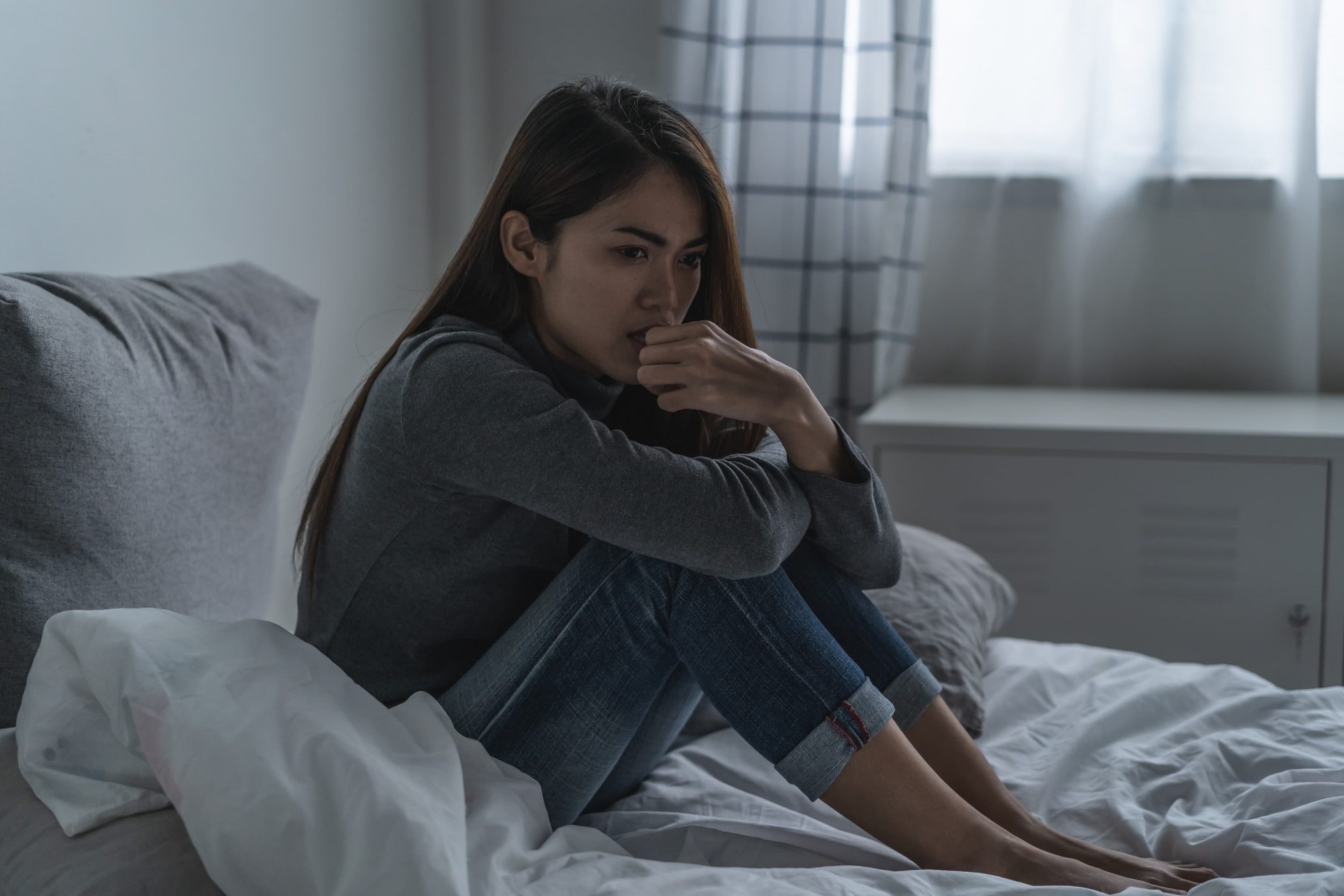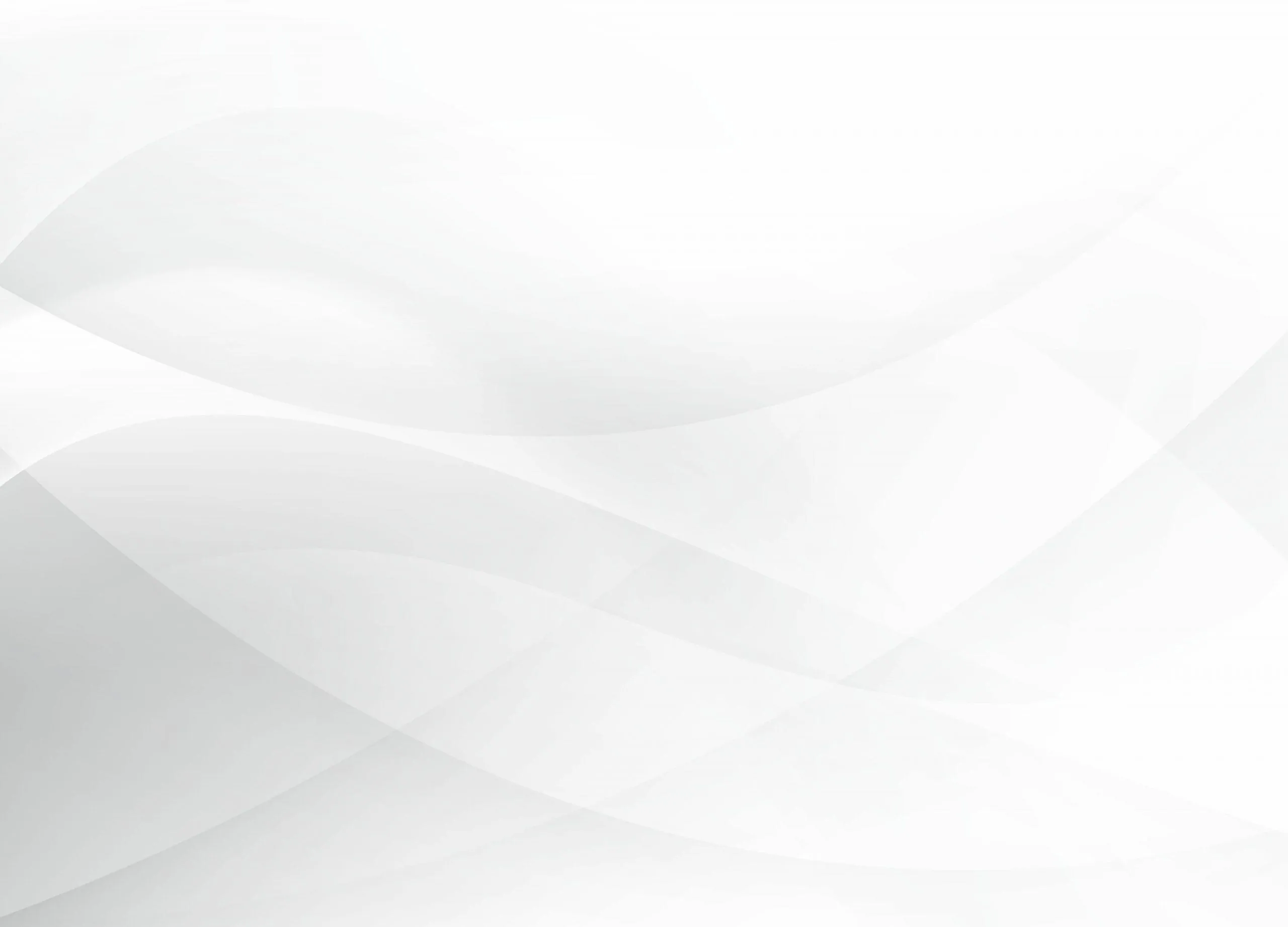Anxiety treatment typically shows improvement within 4-6 weeks, with significant progress occurring in 8-12 weeks for most patients. However, dual diagnosis patients often need 60-90 days for optimal outcomes as both anxiety and addiction require adequate time to stabilize and integrate recovery skills.


Anxiety disorders affect 40 million American adults annually, with over 60% also struggling with co-occurring substance use disorders. At Beachway Therapy Center in West Palm Beach, Florida, we specialize in evidence-based anxiety treatment that addresses both mental health symptoms and addiction simultaneously. Our integrated approach has helped thousands of patients achieve lasting recovery from both anxiety and substance abuse, with 85% of our dual diagnosis patients showing significant improvement within 30 days.
Leading Anxiety and Addiction Expertise: Unlike general mental health programs, our anxiety treatment center focuses specifically on the complex relationship between anxiety disorders and substance use. Our board-certified psychiatrists, licensed therapists, and addiction specialists work together to provide comprehensive care that addresses both conditions for optimal recovery outcomes.
Proven Results from Anxiety Treatment at Beachway
Our comprehensive anxiety treatment program demonstrates superior outcomes through evidence-based care and integrated treatment approaches that address both anxiety and co-occurring substance use disorders.
Treatment Outcomes:
- 85% of patients report significant anxiety reduction within 30 days
- 78% maintain anxiety management skills at 6-month follow-up
- 70% reduction in substance use among dual diagnosis patients
- 92% patient satisfaction with anxiety treatment services
- 65% lower relapse rates compared to treating conditions separately
- Reduced emergency room visits by 80% for anxiety-related crises
Evidence-Based Success: These outcomes reflect our commitment to using proven treatment methods including Cognitive Behavioral Therapy (CBT), Dialectical Behavior Therapy (DBT), and exposure therapy techniques, combined with safe medication management for patients with addiction histories.
Results based on standardized anxiety assessment tools (GAD-7, Beck Anxiety Inventory, Panic Disorder Severity Scale) and follow-up surveys conducted 6-12 months post-treatment.
Panic Attack Disorder Recovery Center in Florida
Panic disorder affects millions of Americans and frequently co-occurs with substance use disorders as individuals attempt to self-medicate their overwhelming symptoms. Our specialized panic disorder recovery program provides comprehensive treatment that addresses both the panic symptoms and any co-occurring addiction issues.
Panic Disorder Treatment Features:
- Immediate crisis intervention for severe panic attacks
- 24/7 medical monitoring and emergency response protocols
- Specialized exposure therapy for panic disorder
- Safe medication management avoiding addictive benzodiazepines
- Family education about panic disorder and emergency support
- Integrated addiction treatment when substance use is present/li>
Beachway’s Comprehensive Anxiety Treatment Process
Our structured, evidence-based approach ensures every patient receives the specialized care needed for anxiety recovery, whether dealing with anxiety alone or co-occurring addiction.
Phase 1: Assessment and Stabilization (Days 1-7)
Comprehensive Anxiety Evaluation:
- Detailed anxiety disorder assessment using standardized tools (GAD-7, Beck Anxiety Inventory, Panic Disorder Severity Scale)
- Medical evaluation for underlying conditions contributing to anxiety (thyroid disorders, cardiac issues, substance withdrawal)
- Substance use assessment and medically supervised detox when necessary
- Medication review and safe adjustment by board-certified psychiatrists specializing in anxiety and addiction
- Crisis assessment for panic disorder and safety planning
- Initial treatment planning addressing both anxiety and any co-occurring substance use disorders
Medical Stabilization: Our medical team specializes in managing the complex needs of anxiety patients, including safe withdrawal from anxiety medications (particularly benzodiazepines), panic attack management, and 24/7 monitoring during the critical early treatment phase.
Phase 2: Intensive Treatment and Skill Building (Weeks 2-4)
Evidence-Based Treatment Integration:
- Daily individual therapy using proven approaches (CBT, DBT, exposure therapy)
- Specialized group therapy with other anxiety and dual diagnosis patients
- Psychiatric medication management focusing on non-addictive alternatives
- Family therapy addressing anxiety’s impact on relationships and family dynamics
- Anxiety-specific coping skills training including breathing techniques, grounding exercises, and stress management
- Crisis intervention training for managing panic attacks and anxiety emergencies
Dual Diagnosis Integration: For patients with co-occurring addiction, treatment includes integrated addiction counseling, relapse prevention planning that addresses both anxiety triggers and substance use, and coordination between mental health and addiction specialists.
Phase 3: Integration and Real-World Application (Weeks 4-6)
Preparation for Independent Anxiety Management:
- Gradual exposure to anxiety triggers in controlled, therapeutic environments
- Practice of anxiety management skills in progressively challenging real-world scenarios
- Aftercare coordination with anxiety specialists and addiction counselors trained in dual diagnosis
- Family education and support system development for ongoing anxiety and recovery support
- Alumni program connection for ongoing peer support and accountability
- Medication management education and compliance planning for long-term success
Extended Care Options: Some patients with severe anxiety disorders or complex dual diagnosis presentations benefit from extended treatment (60-90+ days) to ensure optimal stabilization before transitioning to outpatient care.


Types of Anxiety Disorders Treated at Beachway
Our anxiety treatment center specializes in treating all major anxiety disorders, with particular expertise in cases complicated by substance use disorders.
Generalized Anxiety Disorder (GAD)
GAD involves excessive worry about multiple life areas for 6+ months and is the most common anxiety disorder co-occurring with substance use.
GAD Characteristics:
- Chronic, uncontrollable worry about everyday activities and events
- Physical symptoms including muscle tension, fatigue, and restlessness
- Difficulty concentrating and making decisions
- Sleep disturbances and irritability
- Often co-occurs with depression and substance use disorders
- Responds well to CBT combined with non-addictive medications
Treatment Approach: Our GAD treatment uses evidence-based CBT techniques, worry time scheduling, relaxation training, and carefully selected non-addictive medications when appropriate.


Panic Disorder and Panic Attacks
Panic disorder involves recurrent, unexpected panic attacks and is frequently complicated by substance abuse as individuals seek relief from terrifying symptoms.
Panic Disorder Features:
- Intense fear with physical symptoms (racing heart, shortness of breath, chest pain)
- Fear of having another panic attack (anticipatory anxiety)
- Avoidance of situations where panic attacks have occurred
- Often leads to alcohol or benzodiazepine abuse for symptom relief
- High risk for agoraphobia and social isolation
- Requires specialized exposure therapy and crisis intervention skills
Specialized Treatment: Our panic disorder program includes gradual exposure therapy, panic attack management training, breathing technique instruction, and safe medication alternatives to avoid addictive benzodiazepines.
Social Anxiety Disorder
Social anxiety involves intense fear of social situations and judgment, often leading to alcohol abuse as “liquid courage.”
Social Anxiety Characteristics:
- Fear of judgment, embarrassment, or humiliation in social settings
- Physical symptoms including blushing, sweating, and trembling
- Avoidance of social situations, impacting work and relationships
- Often leads to alcohol abuse before social events
- Can severely impact career advancement and relationship development
- Benefits from gradual exposure therapy and social skills training
Treatment Focus: Social anxiety treatment includes systematic exposure to social situations, social skills training, cognitive restructuring, and alternative coping strategies that don’t involve substance use.
Post-Traumatic Stress Disorder (PTSD) with Anxiety
PTSD often presents with severe anxiety symptoms following traumatic experiences, with extremely high rates of co-occurring substance abuse.
PTSD Anxiety Features:
- Hypervigilance, exaggerated startle response, and constant alertness
- Flashbacks and intrusive thoughts creating ongoing anxiety
- Avoidance behaviors that limit life functioning
- Sleep disturbances and nightmares
- 75% co-occurrence rate with substance abuse
- Requires trauma-informed anxiety treatment approaches
Integrated Treatment: PTSD anxiety treatment includes trauma-focused therapy (EMDR, prolonged exposure), anxiety management skills, and specialized protocols for patients with trauma-related substance use.
Evidence-Based Therapies for Anxiety Treatment
Our therapeutic approaches are specifically adapted to address both anxiety disorders and co-occurring addiction when present, ensuring comprehensive care that addresses all aspects of mental health and recovery.
Cognitive Behavioral Therapy (CBT) for Anxiety
CBT is the gold standard for anxiety treatment with 70-80% effectiveness rates and strong evidence for preventing relapse in both anxiety and addiction.
CBT for Anxiety Includes:
- Identifying anxious thought patterns and cognitive distortions (catastrophizing, mind reading, fortune telling)
- Teaching practical skills for challenging catastrophic thinking and developing balanced perspectives
- Addressing safety behaviors and avoidance patterns that maintain anxiety
- Developing behavioral activation strategies to increase meaningful activities
- Providing tools for managing panic attacks and anxiety episodes
- Integrating addiction recovery goals with anxiety management when both conditions are present
Anxiety-Specific CBT Techniques:
- Thought challenging and cognitive restructuring
- Behavioral experiments to test anxious predictions
- Graded exposure to feared situations
- Relapse prevention for both anxiety and substance use
Exposure and Response Prevention (ERP)
ERP helps patients face anxiety triggers in controlled environments, reducing avoidance behaviors that maintain both anxiety and addiction.
ERP Treatment Process:
- Gradual, systematic exposure to feared situations or objects
- Learning that anxiety naturally decreases without avoidance or substance use
- Breaking the cycle of avoidance that maintains anxiety disorders
- Developing confidence in managing anxiety without substances
- Particularly effective for panic disorder, specific phobias, and social anxiety
- Reducing reliance on alcohol or drugs for anxiety management
Dual Diagnosis ERP: For patients with co-occurring addiction, ERP includes exposure to anxiety triggers while learning to cope without substance use, building confidence in sober anxiety management.
Dialectical Behavior Therapy (DBT) for Anxiety and Addiction
DBT provides essential emotional regulation skills particularly valuable for patients whose anxiety triggers substance use or whose substance use worsens anxiety symptoms.
DBT Skills for Anxiety Recovery:
- Distress tolerance techniques for both anxiety attacks and addiction cravings
- Mindfulness practices for staying present during anxiety rather than escaping through substances
- Emotion regulation techniques for managing intense anxiety and mood swings
- Interpersonal effectiveness skills for anxiety-related relationship issues and communication problems
- Crisis survival skills for managing severe anxiety without self-destructive behaviors
Integration Benefits: DBT’s focus on emotional regulation makes it particularly valuable for dual diagnosis patients, providing tools for managing both anxiety episodes and substance use urges.


Anxiety Medication Management in Recovery
Safe and effective medication management is often essential for anxiety treatment, particularly when combined with addiction recovery. Our addiction-trained psychiatrists specialize in anxiety medication management for patients with substance use histories.
Safe Anti-Anxiety Treatment for Patients with Addiction History
Our Medication Approach:
- Non-addictive anxiety medications including SSRIs, SNRIs, and buspirone
- Strict avoidance of benzodiazepines due to high addiction potential
- Careful monitoring for medication interactions, especially with addiction medications (MAT)
- Alternative treatments when medications aren’t appropriate or effective
- Patient education about medication compliance and its role in anxiety recovery
- Coordination with addiction treatment team to ensure recovery goals are supported
Benzodiazepine Withdrawal and Alternative Treatments
For patients with benzodiazepine dependence, we provide specialized medical protocols to ensure safe withdrawal while managing anxiety symptoms.
Safe Benzodiazepine Withdrawal:
- Medically supervised tapering protocols with 24/7 monitoring
- Seizure prevention and medical stabilization during withdrawal
- Alternative anxiety treatments during the withdrawal process
- Non-addictive medications to manage withdrawal symptoms
- Extended timeline allowing for gradual, comfortable tapering
- Ongoing anxiety treatment throughout the withdrawal process
Non-Addictive Anxiety Medications
First-Line Medications for Anxiety in Recovery:
- Sertraline (Zoloft) – SSRI with proven anti-anxiety properties and low addiction potential
- Escitalopram (Lexapro) – Well-tolerated for both anxiety and depression with minimal side effects
- Buspirone (Buspar) – Non-addictive anti-anxiety medication with no withdrawal syndrome
- Propranolol (Inderal) – Beta-blocker effective for physical anxiety symptoms and performance anxiety
Alternative Treatments:
- Hydroxyzine (Atarax) – Antihistamine with anti-anxiety properties for short-term use
- Gabapentin (Neurontin) – Anti-seizure medication effective for anxiety in some patients
- Trazodone (Desyrel) – Antidepressant helpful for anxiety-related sleep issues
What are the Effects of Anxiety?
Your heart is racing; your palms are cold and clammy; you’ve met with the familiar fight or flight response. Anxiety affects many individuals in many different ways, and for those with co-occurring substance use disorders, these symptoms often drive dangerous self-medication patterns.
Physical Effects of Anxiety:
- Rapid heartbeat and heart palpitations
- Shortness of breath and hyperventilation
- Sweating and trembling
- Muscle tension and headaches
- Gastrointestinal distress
- Fatigue and sleep disturbances
Psychological Effects:
- Persistent worry and racing thoughts
- Fear and sense of impending doom
- Difficulty concentrating or making decisions
- Irritability and restlessness
- Avoidance of anxiety-provoking situations
- Depression and hopelessness
Impact on Daily Life: Perhaps you have trouble sleeping, difficulty breathing, and you can’t seem to shake a feeling of uneasiness that interferes with work, relationships, and daily activities. Many individuals describe simply not being able to turn off their thoughts; their minds are always racing from thought to thought, worrying and feeling uneasy about things that would not normally matter to someone without an anxiety disorder.<
Common Signs and Symptoms of Anxiety Disorders
Anxiety presents differently for many different people, and recognizing the signs early can prevent the development of co-occurring substance use disorders.
Core Anxiety Symptoms:
- Increased heart rate and heart palpitations that may be mistaken for heart problems
- Shortness of breath and hyperventilation leading to panic about breathing
- Perspiration and sweating even in comfortable temperatures
- Dry mouth and difficulty swallowing
- Nausea, dizziness, and vomiting particularly during anxiety attacks
- Difficulty sleeping or staying asleep due to racing thoughts
- Fear and uneasiness about everyday situations and future events
- Difficulty sitting still or concentrating on tasks or conversations
- Muscle tension and tension headaches from chronic stress response
Behavioral Signs of Anxiety:
- Avoidance of situations that trigger anxiety
- Excessive checking behaviors or seeking reassurance
- Procrastination due to anxiety about performance
- Social withdrawal and isolation
- Increased use of alcohol or drugs to cope
- Compulsive behaviors aimed at reducing anxiety
When Anxiety Becomes Dangerous: Even the smallest issue or potential problem can seem like a huge, insurmountable challenge for a person with an anxiety disorder. This overwhelming response often leads individuals to seek relief through alcohol or drugs, creating a dangerous cycle of anxiety and substance abuse.


Does Anxiety Lead to Substance Abuse?
When it comes to anxiety and substance use, it’s often difficult to determine which condition developed first. Anxiety can result in substance abuse, but it’s also common for substance abuse to cause or worsen anxiety disorders. This bidirectional relationship creates complex dual diagnosis presentations that require specialized treatment.
How Anxiety Leads to Substance Abuse
Self-Medication Patterns:
- Alcohol abuse to reduce social anxiety and panic symptoms
- Benzodiazepine dependence from legitimate prescriptions that escalate
- Marijuana use as perceived “natural” anxiety relief
- Stimulant abuse to counteract depression and low energy from anxiety
- Prescription drug abuse including sleep aids and pain medications
The Self-Medication Trap: For many individuals who suffer from anxiety, self-medicating with drugs or alcohol can initially mask the symptoms and make them feel like they have control over their lives. However, this relief is temporary and creates additional problems. Covering up a mental health disorder with substance use adds to the problem and often exacerbates anxiety symptoms, resulting in increased self-loathing, paranoia, depression, and social isolation.
How Substance Abuse Worsens Anxiety
Substance-Induced Anxiety:
- Alcohol withdrawal creates rebound anxiety that’s often worse than original symptoms
- Stimulant use (cocaine, methamphetamine) can trigger panic attacks and paranoia
- Cannabis withdrawal can cause increased anxiety and panic in regular users
- Caffeine and nicotine can worsen anxiety symptoms and trigger panic attacks
- Benzodiazepine tolerance leads to breakthrough anxiety between doses
Complex Dual Diagnosis Presentations
Anxiety as Secondary Condition: In many cases, anxiety develops as a secondary mental health disorder alongside other conditions such as PTSD, depression, or eating disorders. Individuals suffering from these mental health problems often turn to drugs or alcohol to seek comfort from their symptoms and dull their overwhelming and uncomfortable feelings.<
High-Risk Populations: Individuals with anxiety disorders pose an even greater risk for developing substance use disorders. For many, daily doses of doctor-prescribed anti-anxiety medication become the gateway to dependence. When these medications are mixed with alcohol or illicit substances, the consequences can be devastating, potentially leading to overdose,alcohol treatment, or comprehensive dual diagnosis care.
Specialized Dual Diagnosis Treatment for Anxiety and Addiction
The best way to treat co-occurring anxiety and substance abuse is with professional drug rehab treatment specifically designed to address the unique problems associated with both mental illness and addiction. When a person is diagnosed with an anxiety disorder in addition to addiction, it’s referred to as a dual diagnosis, requiring specialized treatment approaches.
Understanding the Anxiety-Addiction Cycle
Anxiety and addiction often fuel each other in destructive patterns that require specialized intervention to break:
The Destructive Cycle:
- Anxiety triggers substance use as individuals seek immediate relief from overwhelming symptoms
- Substance use provides temporary relief but worsens anxiety through tolerance, withdrawal, and life consequences
- Withdrawal from substances triggers severe anxiety and panic attacks, driving continued use
- Untreated anxiety significantly increases relapse risk even after addiction treatment
- Social isolation from both conditions reinforces the cycle and reduces support systems
Clinical Understanding: Research shows that individuals with anxiety disorders are twice as likely to develop substance use disorders, while those with addiction are three times more likely to experience anxiety disorders, making integrated treatment essential rather than optional.
Common Dual Diagnosis Presentations
Anxiety and Alcohol Use Disorder:
- Most common dual diagnosis combination affecting millions of Americans
- Alcohol initially reduces anxiety but creates rebound anxiety during withdrawal
- Often begins with social drinking to manage social anxiety
- Requires medically supervised detox and anxiety management training
Anxiety and Benzodiazepine Dependence:
- High risk due to legitimate medical prescriptions for anxiety
- Develops through tolerance requiring higher doses for same effect
- Withdrawal can be dangerous and requires medical supervision
- Needs alternative anxiety treatments and gradual tapering protocols
Anxiety and Marijuana Dependence:
- Often perceived as “natural” and “safe” anxiety treatment
- Can worsen motivation and increase paranoia with regular use
- Withdrawal causes significant anxiety increase in dependent users
- Requires motivation enhancement and alternative coping strategies
Anxiety and Stimulant Abuse:
- Stimulants may temporarily improve confidence and energy but worsen anxiety long-term
- High risk for severe anxiety and panic during withdrawal periods
- Often combined with depressants creating dangerous polydrug patterns
- Requires intensive psychiatric monitoring and comprehensive support
Integrated Treatment Approach
Our dual diagnosis program treats both anxiety and addiction simultaneously rather than sequentially, leading to significantly better outcomes and reduced relapse risk.
Coordinated Care Elements:
- Integrated treatment team including psychiatrists, addiction specialists, and dual diagnosis therapists
- Specialized therapy groups for patients managing both anxiety and addiction
- Coordinated medication management avoiding addictive substances while treating anxiety effectively
- Comprehensive relapse prevention addressing both anxiety triggers and substance use patterns
- Family education about both anxiety and addiction as interconnected medical conditions
- Aftercare planning with dual diagnosis-trained outpatient providers for continued support
Anxiety Crisis Intervention and Emergency Support
Severe anxiety can feel life-threatening and often drives emergency substance use, requiring immediate intervention capabilities and crisis planning.
Managing Severe Panic Attacks and Anxiety Crises
Comprehensive Crisis Protocols:
- 24/7 nursing supervision and immediate psychiatrist availability for anxiety emergencies
- Crisis intervention protocols for severe panic attacks and anxiety episodes
- Emergency medication protocols using non-addictive alternatives for crisis situations
- Environmental safety measures including calm spaces and crisis intervention rooms
- Family education about anxiety emergencies, panic attack management, and when to seek help
- Staff training in de-escalation techniques and anxiety crisis management
When to Seek Immediate Help for Anxiety
Emergency Warning Signs:
- Severe panic attacks lasting longer than normal or occurring frequently
- Thoughts of self-harm due to overwhelming anxiety symptoms
- Inability to function in daily life due to severe anxiety
- Increased substance use to cope with anxiety symptoms
- Chest pain, breathing difficulties, or heart palpitations during anxiety episodes
- Suicidal thoughts related to anxiety or dual diagnosis struggles
Immediate Resources:
- Emergency Services: Call 911 for medical emergencies
- National Crisis Lifeline: 988 (24/7, free, confidential)
- Crisis Text Line: Text HOME to 741741
- SAMHSA National Helpline: 1-800-662-4357 (24/7 treatment referral)
- Beachway Crisis Line: 877-284-0353
Crisis Planning for Dual Diagnosis Patients
Patients with both anxiety and addiction face increased crisis risk, requiring specialized safety planning that addresses both conditions.
Dual Diagnosis Crisis Factors:
- Substance withdrawal can trigger severe anxiety episodes and panic attacks
- Anxiety episodes significantly increase relapse risk and substance use urges
- Impaired judgment from either condition increases danger and poor decision-making
- Social isolation from both conditions reduces available support and resources
Specialized Crisis Plans:
- Identification of specific triggers for both anxiety episodes and substance use
- Multiple contact persons including both mental health and addiction support
- Medication management during crisis periods with non-addictive alternatives
- Environmental modifications to reduce both anxiety triggers and substance access
- Emergency protocols that address both conditions simultaneously
Benefits of Holistic Treatment for Anxiety Disorders and Substance Abuse
At Beachway Therapy Center, we utilize a holistic treatment approach in the dual diagnosis healing process, recognizing that anxiety affects the whole person—mind, body, and spirit. This comprehensive treatment method is known to heal patients through evidence-based therapies combined with unique experiential treatments, nutritional counseling, mindfulness practices, and spiritual care.
Evidence-Based and Holistic Integration
Core Holistic Treatment Components:
- Individual therapy using CBT, DBT, and exposure therapy adapted for dual diagnosis
- Group therapy with other anxiety and dual diagnosis patients for peer support
- Psychiatric care including non-addictive medication management and monitoring
- Family therapy addressing anxiety’s impact on relationships and recovery support
- Experiential therapies supporting overall wellness and anxiety management skills
Popular Holistic Treatments for Anxiety:
- Equine therapy for building emotional awareness, trust, and confidence
- Art and drama therapy for creative expression and emotional processing of anxiety
- Faith-based healing for those who find strength in spiritual practices and prayer
- Nutritional counseling addressing diet’s impact on anxiety, mood, and energy levels
- Physical activity and fitness programs supporting natural anxiety reduction and stress management
Addressing Root Causes vs. Symptoms
One of the most significant features of our holistic treatment approach is that instead of simply treating the superficial symptoms of anxiety and addiction, our therapists address the underlying causes of both conditions. This comprehensive approach ensures lasting results and helps prepare patients for a healthy and successful future free from both anxiety disorders and substance abuse.
Root Cause Analysis:
- Identifying trauma or life experiences that contributed to anxiety development
- Understanding family patterns and genetic predispositions
- Addressing co-occurring conditions that worsen anxiety
- Exploring the development of self-medication patterns
- Building healthy coping mechanisms to replace substance use
Family Support in Anxiety and Addiction Treatment
and addiction affect entire families, requiring comprehensive support and education for optimal recovery outcomes and family healing.
Family Education and Therapy
Comprehensive Family Support:
- Education about anxiety as a medical condition requiring ongoing management and understanding
- Understanding the anxiety-addiction connection and how these conditions reinforce each other
- Communication strategies for supporting recovery without enabling substance use or anxiety avoidance
- Boundary setting and avoiding enabling behaviors that maintain anxiety or addiction
- Crisis planning including emergency contacts, intervention protocols, and safety measures
- Self-care strategies for family members dealing with secondary stress and trauma
Family Therapy Approaches
Evidence-Based Family Interventions:
- Family systems therapy addressing how anxiety and addiction impact family roles and relationships
- Communication skills training for managing anxiety-related conflicts and substance use discussions
- Education about medication compliance and treatment participation for both conditions
- Problem-solving strategies for managing anxiety triggers and addiction challenges in family settings
- Support group connections for families affected by dual diagnosis conditions
Family Recovery Benefits: Research shows that family involvement in anxiety and addiction treatment improves outcomes by up to 60%, making family therapy an essential component of comprehensive dual diagnosis care.
Start Your Recovery from Anxiety and Addiction Today with Beachway
It’s easy to feel defeated when anxiety symptoms seem overwhelming and substances no longer provide relief. There is no shame in suffering from an anxiety disorder and addiction—these are medical conditions that require professional treatment, just like diabetes or heart disease.
Recovery is Possible: Like many other chronic conditions, anxiety and addiction are manageable with the right support systems, evidence-based treatments, and ongoing care. Treatment at a qualified anxiety and addiction rehab facility in Florida is the perfect way to get comprehensive help and find freedom from both conditions.
Comprehensive Dual Diagnosis Care: Dual diagnosis treatment can be challenging, but the reward is a healthy, anxiety-free, and sober future. Our integrated approach addresses both conditions simultaneously, providing the tools and support needed for lasting recovery and improved quality of life.
Take the First Step: Don’t let anxiety and addiction control your life any longer. Professional help is available, and recovery is achievable with the right support and treatment approach.
Frequently Asked Questions About Anxiety Treatment
How long does anxiety treatment take?
Can I take anxiety medication if I have an addiction history?
Yes, our addiction-trained psychiatrists specialize in non-addictive anxiety medications and strictly avoid benzodiazepines due to their high addiction potential. We use SSRIs, SNRIs, buspirone, and other safe alternatives. Our team will work with you to find effective, non-addictive options that support both anxiety management and recovery goals.
What's the difference between normal worry and an anxiety disorder?
Normal worry is proportional to the situation, temporary, and doesn't significantly interfere with daily functioning. Anxiety disorders involve excessive, persistent worry that's difficult to control, lasts for months, includes physical symptoms, and significantly impairs work, relationships, or daily activities.
How do you treat anxiety and addiction together?
Our integrated dual diagnosis approach treats both conditions simultaneously through coordinated care teams, specialized therapy groups, medication management that considers both conditions, and treatment planning that addresses the interconnected nature of anxiety and addiction. This approach is more effective than treating conditions separately and significantly reduces relapse risk.
What if I'm afraid to stop my anxiety medication?
We provide medically supervised tapering for addictive medications like benzodiazepines, along with alternative treatments to manage anxiety during the transition. Our goal is a safe, comfortable transition to non-addictive anxiety management through therapy, lifestyle changes, and appropriate non-addictive medications when needed.
What support is available for families?
We offer comprehensive family therapy, education about both anxiety and addiction as medical conditions, communication skills training, crisis planning, and connection to family support groups. Family involvement significantly improves treatment outcomes and helps create supportive environments for long-term recovery.
Do you treat specific anxiety disorders like panic disorder or social anxiety?
Yes, we treat all major anxiety disorders including Generalized Anxiety Disorder (GAD), panic disorder, social anxiety disorder, PTSD-related anxiety, and specific phobias. Our treatment is tailored to each specific anxiety disorder while addressing any co-occurring substance use disorders.
What happens during a panic attack at your facility?
Our staff is specially trained in panic attack management and crisis intervention. We provide immediate support, breathing techniques, grounding exercises, and medical evaluation if needed. Our 24/7 medical team can provide non-addictive crisis medications and ensure patient safety during severe anxiety episodes.







